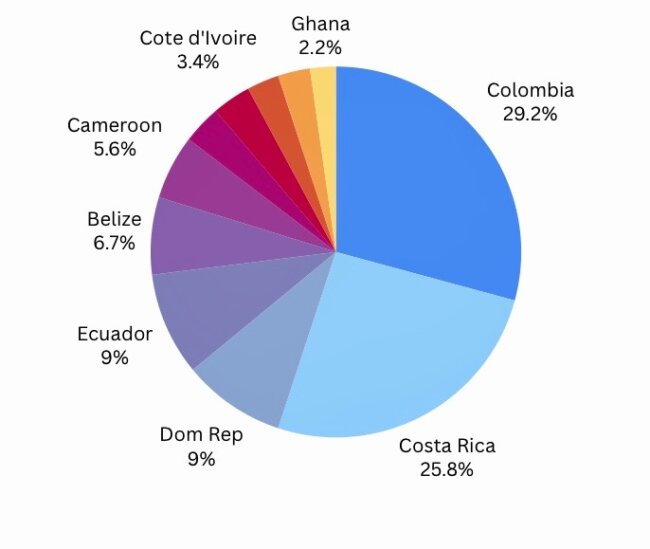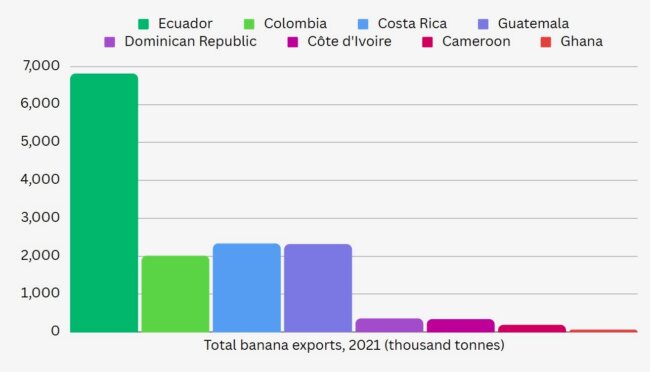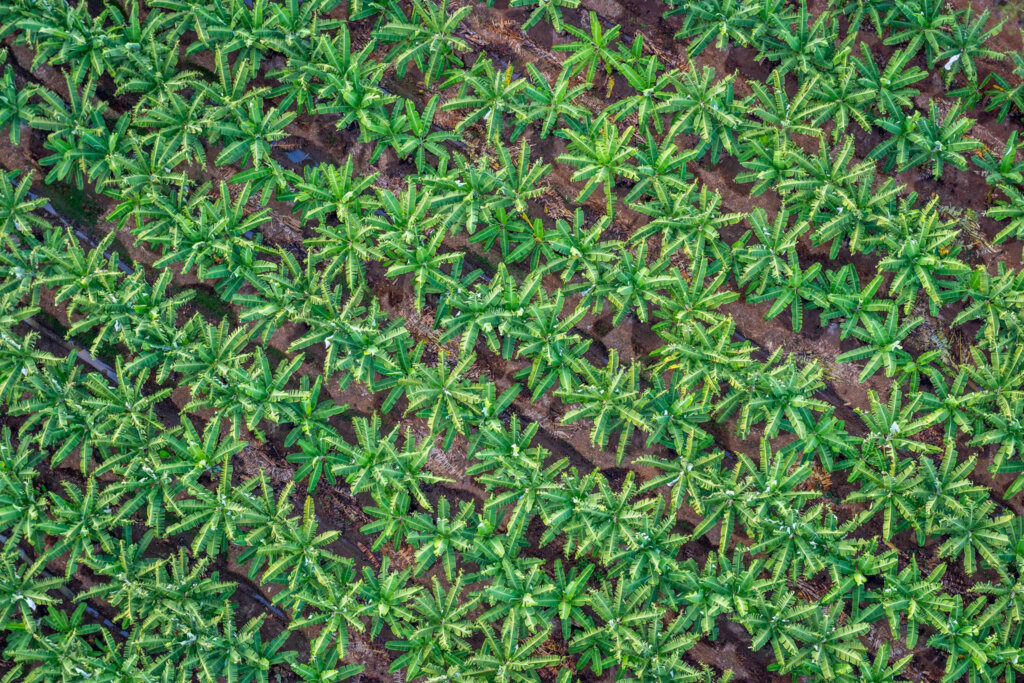The UK consumes around 915,000 tonnes of bananas every year. Over 70% of these bananas are grown in South and Central American countries, with three countries – Colombia, Costa Rica and Ecuador – dominating the trade, accounting for 57% of the total supply. As part of the EU, Britain offered favourable trading conditions to producers in Africa, the Caribbean and the Pacific (ACP nations), who benefited from duty and quota free exports under economic partnership agreements anchored in principles of human rights and sustainable development and cooperation. However, recent tariff reductions to Peru and Mexico put the UK governments position into question. In July 2023, the UK signed an agreement which has seen Mexico and Peru benefit from tariff reductions that reduce costs by over a third – from £62/1000kg to £40/1000kg for up to 8000 tons of bananas.
Concerns about how post-Brexit trade policy will affect ACP producers are being raised by Afruibana- an association of fruit producers and exporters in Côte d’Ivoire, Cameroon and Ghana. If equivalent concessions were granted to the Latin American banana giants – Ecuador, Costa Rica and Colombia – it would afford them savings of over £12 million a year, says the association. The result would be disproportionate bargaining power wielded by large producers in contract negotiations with UK supermarkets, at the expense of smaller African producers. ‘This is particularly important in the UK market where 90% of bananas are sold through a handful of retailers’ the African producers and exporters association says.
Currently, bananas from African and Caribbean origins represent a modest share of the UK market at around 18%, with Dominican Republic, Côte d’Ivoire and Ghana leading the supply. Similar figures are reported for the European market. However, as the world’s most exported fruit, the importance of the banana industry as a source of stable employment in rural areas cannot be underestimated. Often, the banana plantation is the only employer around. With low levels of mechanisation, a large manual workforce is required – labour often accounting for over 40% of the total costs of production. And, unlike other fruit, bananas produce fruit the whole year round, making it possible for workers to receive a reliable monthly salary.
Percentage of UK imports by leading source countries

Source: CIRAD/FruiTrop, Jul-Aug 2023
For Afruibana, the banana industry is ‘a pillar of African rural development’. Plantations are often located in rural areas between coastal and Sahelian nations, acting as a ‘buffer zone’ of stability against the prevailing threats of violent extremism and humanitarian crises. In the first half of 2023 alone, over 1,814 incidents of terrorist attacks were recorded in West Africa and the Sahel, with at least 4,500 people killed. The Sahel region is recognised as one of the world’s fastest-growing humanitarian crises, where millions of people have been displaced by ‘indiscriminate attacks by armed groups and militias, insecurity, widespread human right violations, including gender-based violence and violence against children, and the effects of climate change…’. Tangible and long-terms solutions are required to address the situation, UN Special Representative Leonardo Santos Simaõ stated earlier this year.
Despite the difficulties they face, several banana and fruit producing companies operating in the West and Central African region are among the most highly regarded in terms of working conditions and labour rights, and among the most forward thinking when it comes to adapting fruit production to the dual hazards of climate change and biodiversity loss. Compagnie Frutière, the leading African banana producer, for example, is improving working conditions by taking measurable action such as increasing the number of workers on permanent contracts, decreasing the gender employment gap, and pursuing an active policy of dialogue with employees and social partners. Their commitment to reducing harm to the environment is illustrated by a reported a reduction of the use of pesticides by 17% in just one year (2021-22), alongside an increase in the proportion of fruit grown organically and the implementation of crop diversification methods.
In a statement to the UK parliament, Afruibana noted the following:
Across the three African banana exporting countries the sector provides more than 80,000 direct and indirect high-quality jobs, sustaining approximately half a million people in rural areas where there are often few other employment opportunities. Workers in the sector benefit from full freedom of association and active trade unions, child labour is prohibited and living wages are paid along with substantial in-kind benefits (such as housing, health, education, transportation, and others). The logistics of the sector provide an engine for all food-crop production and exports as well as a springboard agro-processing as activities such as drying and banana-related products such as flour, juice and preserves create value-addition opportunities and higher skilled jobs, particularly for women. Contributing to the economic and social development of these economies also helps to decrease migratory pressure and support political stability in this potentially volatile region.

Source: FAO Banana Statistical Compendium 2021
